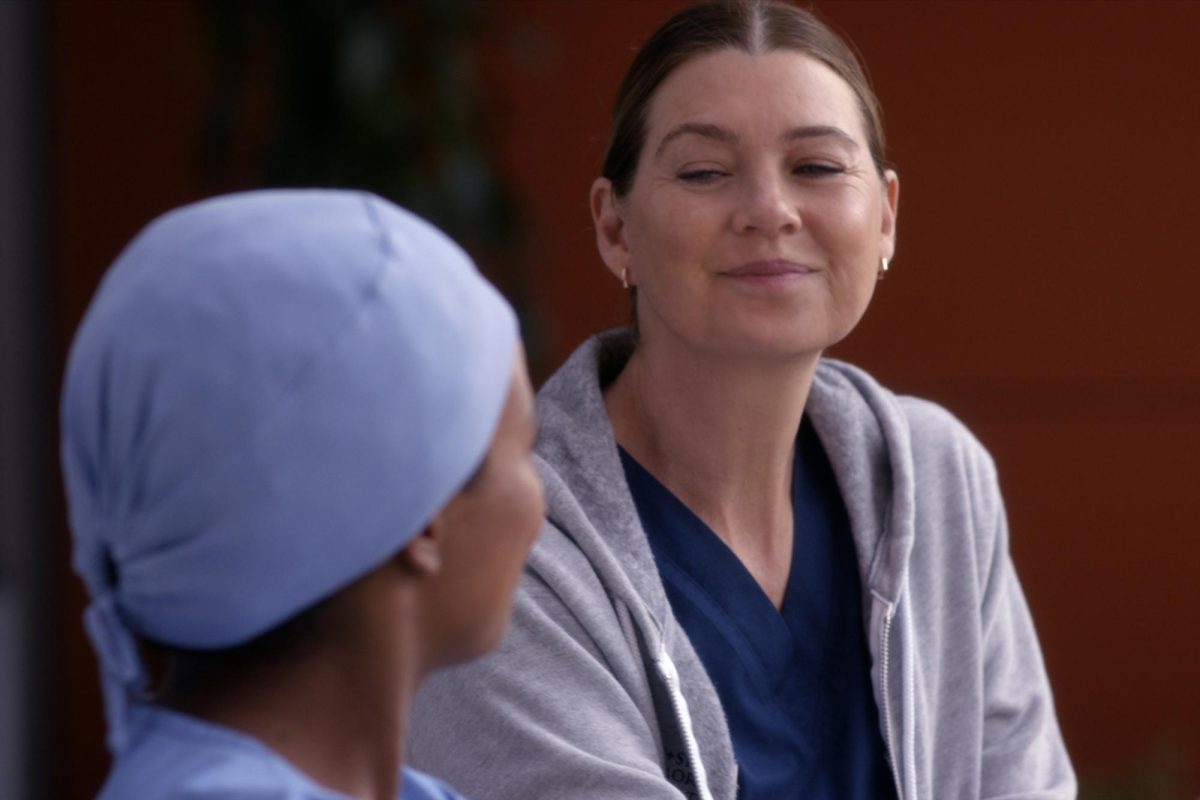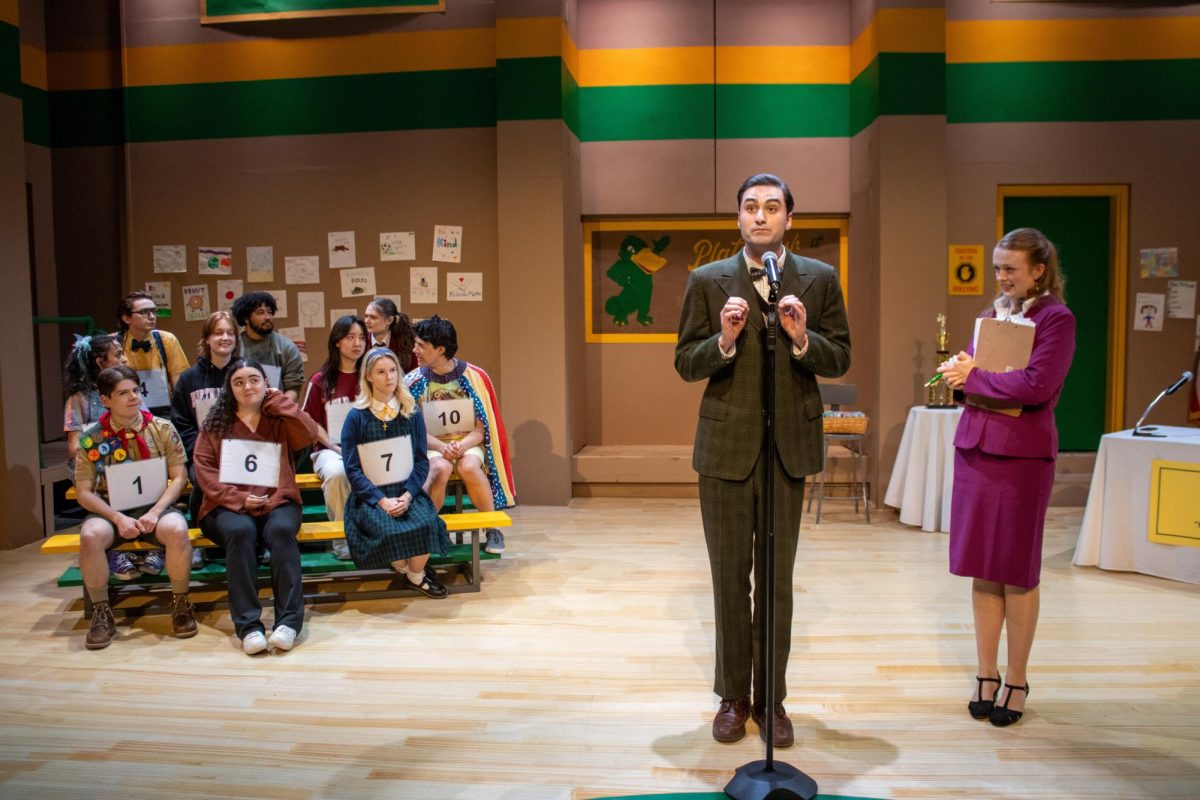Since its debut in 2005, the immensely popular series “Grey’s Anatomy” has captured the hearts of millennials and Generation Z.
“Grey’s Anatomy,” an 18-year-long medical drama that has won over seven dozen awards, began with the original cast of Ellen Pompeo, Sandra Oh, Katherine Heigl, Justin Chambers, T.R. Knight, Chandra Wilson, James Pickens, Jr., Isaiah Washington and Patrick Dempsey. The show catapulted many of the cast’s careers. However, only Wilson and Pickens remain going into the next season.
As the show enters its 20th season this spring, it has become clear that “Grey’s Anatomy” has overstayed its welcome in the spotlight.
The series has had six showrunners over its 18-year run: creator Shonda Rhimes, Krista Vernoff, Tony Phelan, Joan Rater, Stacy McKee and William Harper. Vernoff held the position on two separate occasions, returning seven years after holding the post the first time.
Meredith Grey (Pompeo), the show’s titular character, has faced various life-threatening scenarios including drowning, a bomb threat, a hospital shooting, a plane crash, a violent patient attack and a near-fatal case of COVID-19. After several years of expressing her desire to move on to new acting challenges, Pompeo left the series in its 19th season. With the show’s iconic star gone and viewership dropping steadily over the years, what incentive is there for people to keep watching?
Meredith began the show as a surgical intern at the fictional Seattle Grace Hospital, where she rose through the ranks to become a resident, attending general surgeon, board director, director of residency and, finally, chief of general surgery.
Some of the most distressing episodes included the 16th and 17th episodes of the second season, “It’s the End of the World” and “As We Know It,” respectively. A patient arrives at Seattle Grace with an undetonated bomb in his body and a young paramedic has her hand wrapped around it. Eventually, when she removes her hand, Meredith places her own hand on the bomb to keep it in place. The first episode of the two-parter served as the lead-out program for the 2006 Super Bowl. The 37.88 million U.S. viewers were on the edge of their seats, waiting to see what would happen with the bomb and whether Meredith would die.
Another eye-catching pair of episodes were the 23rd and 24th episodes of the sixth season, titled “Sanctuary” and “Death and All His Friends,” respectively. The episodes served as the season six finale and featured a vengeful gunman in the hospital who kills employees and shoots Dr. Derek Shepherd (Dempsey), who is Meredith’s husband.
These episodes, along with many others, were suspenseful and entertaining with their stellar acting and precise storylines, prompting emotional reactions from viewers. Despite the impact the show has made and its sentimental moments, the scripts have gotten bland, making it boring due to the show’s reuse of storylines.
The 17th season, which aired during the COVID-19 pandemic, sparked concern about dull and repetitive plots. Meredith’s diagnosis with COVID-19 was central to the season, with each episode showing her confined to a hospital bed.
Vernoff, the head writer at the time, injected some excitement into the pandemic narrative. Her approach took an extreme turn, introducing a motif where a bedridden Meredith would experience dreams featuring deceased characters, including George O’Malley (Knight), who died in season five, Lexie Grey (Chyler Leigh), who died in season eight, Mark Sloan (Eric Dane), who died in season nine and Shepherd, who died in season 11. In many television shows, such as “ER,” “Beverly Hills, 90210” and “Criminal Minds,” the reappearance of past characters often signifies that a show is approaching its conclusion. Nevertheless, despite this common expectation, “Grey’s Anatomy” finds itself on the brink of a historic 20th season three years later.
In Pompeo’s final season, Meredith — who had been through multiple near-death circumstances at this point — exits the show by simply jetting off to Boston. There is no perfect last episode for a character who survived a bomb, a hospital shooting, a plane crash and COVID-19. Pompeo and Meredith alike deserved better endings to their stories.
The upcoming season, which begins airing new episodes in March, asks a critical question about what viewers might expect in “Grey’s Anatomy’s” first season without its namesake. The previous season’s inclusion of five new surgical interns brought a new element to the show. However, it feels as though the nostalgia that is meant to emotionally provoke the audience is overshadowed by its cliche writing and the forced, rushed development of the new characters.
The five original surgical interns from the first episode are strikingly similar to the newly introduced characters — each newcomer is a carbon copy of one of the initial five. This cliche strategy is a typical manner of restarting a show that has been on the air since today’s college students were newborns. “Glee,” “ER” and “The Good Wife” are a few other examples of shows with finales featuring the rebirth of older characters.
“Grey’s Anatomy” has spawned two spin-off series throughout the years: “Private Practice,” which ended in 2013, and “Station 19.” Recently, it was announced that the seventh season of “Station 19” would be the last. With the conclusion of both “Private Practice” and the upcoming last season of “Station 19,” “Grey’s Anatomy” feels like it has spanned a lifetime.
It seems as though there is no hope the show will see more unique storylines and any plans the producers and writers have or will make for a series finale already feel ruined.

















